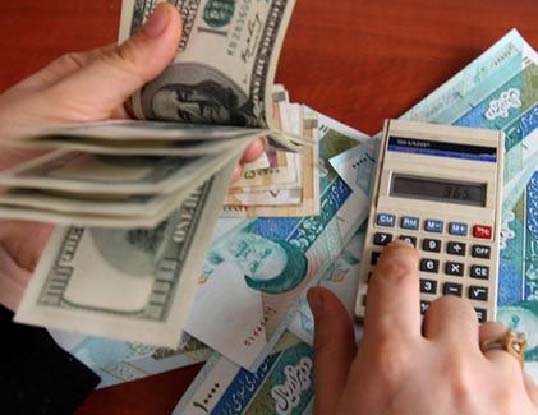During past few weeks, the currency crisis in Islamic Republic of Iran was interpreted as promising signal for Israel and its allies that indeed sanctions might work and bring about flexibility to its current confrontational and intransigent nuclear policies.
Those who have closely followed the process of free fall of Rial against other currencies maintain that the main reason behind is the lack of foreign currencies imposed by global sanctions.
The Israeli foreign Minister, Mr. Avogadro Lieberman stepped far beyond and calculated that after "Arab Spring", it would be turn of "Persian Spring". He alleged that crippling economic sanctions would certainly put the civil uprising in circulation to an extent that would herald the collapse of clerical regime.
What were much highlighted as sign of success of sanctions were the last week protests in Tehran, the capital and the heartbeat of the country's economy. According to videos and clips posted on social networks as well as displayed by media, shopkeepers closed down their shops in protest against high rate of inflation.
They were chanting anti-government slogans, saying that instead of Syria it should have thought about people.
Definitely, as result of declining value of Rial, the price of imported goods has also tremendously increased. Entrepreneurs and businessmen who are engaged in exportations of goods out of the country also wonder whether to export their goods with the same price or not. According to reports, they are delaying in order to watch out where the Rial may stop based on which they calculate their businesses.
Certainly, the government understands that tumultuous currency situation has larger economic and political implications. They have tried to fix the rate through provision of dollars in low price rate. Earlier this year, the exchange rate between dollar and Rial was around 1200. But since last few months, particularly, past few weeks, every exchange sets a new record which indeed has perplexed authorities and they have started blaming one another. The central
government has tried its best to manage the crisis and oblige public banks to provide people foreign currencies in low price. The step not only restored the normal situation rather divided the markets on the basis of currency.
In the free market or market out of the full control of government, the sensitive exchange rate continually has broken the records while\ the so-called dollars or the dollar provided by the government remained as low as almost half of price in the free market. Meanwhile, it should be noticed that there are reports about complains of entrepreneurs who were saying that amount of foreign currencies by government was too small with which they could handle their businesses.
But seemingly even that small amount of foreign currencies is not going to be paid with exchange rate of a month ago. While previously assuming the exchange rate to level of 2,000 Rial looked weird, now people are happy if the rate is fixed around 2,500. But seemingly it may not work. There are reports that money exchangers are not selling dollars in the rate fixed by government.
Instead, they secretly sell in higher rate to costumers. Thus, the policies yet held to bring currency crisis under the control have bluntly failed. Now wings within the system are pointing fingers towards one another which further highlight the widening gap within the ruling authorities. President Mahmoud Ahmadinejad clearly said that initially all are involved in the so-called economic policies, because everybody is present in sessions arranged to make key decisions. But when a policy fails, everybody steps back and blames his administration for the failure.
Previously, he also talked invisible hands that prevent his government to control and manage their crisis. He said that if they allowed, the government could manage the currency chaos in a manner that nations could never feel the foreign pressures. Now he has become frank.
He terms Rial free fall the result of "Psychological war" from inside and outside of the country against his government. The term "psychological war" usually referred to alerts and warnings of US and its allies about damaging economic sanctions and not taking military options off the table if country's nuclear program takes military direction.
But now Mr. President talks about domestic psychological war against his government. Obviously, he does not mean reformist wing whose leaders, Dr. Mir Hussain Mosavi and Mahdi Karobi, who are not under house arrest and, according to analysts, are a danger to government anymore. Thus, he certainly means figures and wings within the government who are ultra-conservative and opposes policies which are the red-lines of the regime, for instance, like negotiation with the United States.
Opposition MPs also turned the sharp edge of their criticism towards the government. Some of them asked him to step down before the completion of his presidential term. The second phase of "Targeting Subsidies Plan" was cancelled.
With all the above problems, will the dream of figures like Avogadro Lieberman come true? However, it is too early to judge about the political implications of sanctions, but the prospective and experience of 2009 does not suggest that any fundamental change is on the way. Crackdown of reformist wing and putting their under house arrest tells that security forces are highly capable to deal with any circumstances.
Additionally, the regime has large supporters. Even reformists who have the support of foreign countries dare not to violate lines around the system. None of the oppositions from inside the country dared to put the idea of "regime change". Indeed, wings and powerful figures, if oppose the government, do not have any problem with the system. What they are asking for are reforms that make the government more accountable. Thus, I think a "Persian Spring" is unlikely at least in the upcoming future.

